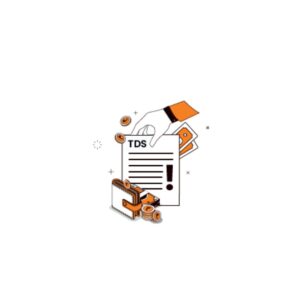
 TDS Compliance Meaning
TDS Compliance Meaning
TDS compliance meaning entails adhering to the regulations outlined in the Income Tax Act, 1961, pertaining to Tax Deducted at Source (TDS).. It involves the proper deduction, deposit, and reporting of TDS by the deductor (the person responsible for making specified payments) to the tax authorities.
TDS compliance encompasses several aspects, including:
Deduction of TDS:
The deductor is required to deduct TDS from certain payments at the prescribed rates before making the payment to the recipient. The deductor must correctly identify the payments on which TDS is applicable and deduct the appropriate amount.
Timely deposit of TDS:
The deducted TDS amount must be deposit with the government within the due dates specified by the tax authorities. The deposit should be made using the designated Challan and through authorized modes of payment.
Issuance of TDS certificates:
The deductor is require to issue TDS certificates to the deductees (the recipients of payments) in the prescribed format. These certificates provide details of the TDS deducted, such as the amount, nature of payment, and TDS payment identification number.
Filing of TDS returns:
The deductor is responsible for filing periodic TDS returns, such as Form 24Q for salaries, Form 26Q for non-salary payments, and Form 27Q for TDS on payments to non-residents. These returns provide information about the TDS deducted and deposited during a specific period.
Non-compliance with TDS provisions can lead to penalties, interest, and other consequences. Therefore, ensuring TDS compliance is important for deductors to meet their statutory obligations and avoid any legal or financial repercussions.
To visit: https://www.incometax.gov.in
FAQs
1.What does TDS stand for?
Answer: TDS stands for Tax Deducted at Source. It is a tax collected by the government directly from the income of the taxpayer at the time of payment.
2. What is TDS compliance?
Answer: TDS compliance means following the rules and regulations related to TDS, including deducting the correct amount of tax, depositing it on time, and filing returns.
3. Who is responsible for TDS compliance?
Answer: Employers and businesses making payments that attract TDS are responsible for compliance. They must deduct TDS before making payments to individuals or entities.
4. What types of payments are subject to TDS?
Answer: Payments like salaries, interest, rent, professional fees, and commission are subject to TDS.
5. How is TDS calculated?
Answer: TDS is calculated as a percentage of the payment amount, based on the nature of the payment and the applicable tax rate.
6. When should TDS be deducted?
Answer: TDS should be deduct at the time of making the payment or at the end of the financial year, depending on the type of payment.
7. When and how should TDS be deposit?
Answer: TDS should be deposited with the government by the 7th of the following month after deduction, using the designated bank or online portal.
8. What are the consequences of non-compliance?
Answer: Non-compliance can lead to penalties, interest on the amount due, and potential legal action from the tax authorities.
9. What documents are require for TDS compliance?
Answer: Key documents include TDS challans, TDS returns, and Form 16/16A issued to the deductee, which show the amount of TDS deducted.
10. How can one check TDS compliance?
Answer: TDS compliance can be check through Form 26AS, which is a statement that shows the TDS deducted on behalf of the taxpayer.
For further details access our website https://vibrantfinserv.com
![]()